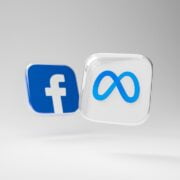
Facebook’s Downtime: A Perfect Time to Prioritize Your Health
In recent years, social media has become an integral part of our daily lives. It has revolutionized the way we connect with others, share information, and consume content. However, the recent downtime of Facebook, one of the largest social media platforms, has shed light on the impact it has on our lives. During this downtime, people were forced to find alternative ways to connect with others and fill their time. This experience has made many reflect on their social media habits and consider the impact it has on their mental health and well-being.
Key Takeaways
- Facebook’s recent downtime is an opportunity to reflect on social media habits.
- Social media can have a negative impact on mental health and well-being.
- Disconnecting from social media has benefits but can also be challenging.
- Prioritizing self-care during digital detox is crucial for overall wellness.
- Finding alternative ways to connect with loved ones can be fulfilling and rewarding.
The impact of social media on mental health and well-being
Numerous studies have shown that social media can have a negative impact on mental health. One study conducted by the Royal Society for Public Health in the UK found that Facebook, Instagram, Snapchat, and Twitter all contribute to feelings of anxiety, depression, loneliness, and poor body image. The constant comparison to others’ highlight reels and the pressure to present a perfect life can lead to feelings of inadequacy and low self-esteem.
Another study published in the Journal of Social and Clinical Psychology found that limiting social media use to 30 minutes per day can significantly reduce symptoms of depression and loneliness. This suggests that excessive use of social media can be detrimental to mental health.
Disconnecting from social media: benefits and challenges
Taking a break from social media, also known as a digital detox, can have numerous benefits for mental health and well-being. Disconnecting from social media allows individuals to focus on themselves and their own lives without the constant comparison to others. It can lead to improved mental health, increased productivity, and better sleep.
However, disconnecting from social media also comes with its challenges. Many people fear missing out on important updates or events if they are not constantly connected. There is also a societal pressure to stay connected and be present on social media platforms. Overcoming these challenges requires a shift in mindset and a commitment to prioritize one’s own well-being over the need for constant connection.
Prioritizing self-care during times of digital detox
During a digital detox, it is important to prioritize self-care. This means taking care of one’s physical, mental, and emotional well-being. Engaging in activities such as meditation, exercise, and spending time in nature can help reduce stress and improve overall well-being. It is also important to set boundaries and create a routine that allows for self-care activities.
Finding alternative ways to connect with friends and family
While social media has made it easier than ever to connect with friends and family, it is important to remember that there are alternative ways to stay connected. Phone calls, video chats, and in-person meetings can provide a more meaningful and personal connection. These alternative methods of communication allow for deeper conversations and a stronger sense of connection.
The role of social media in addiction and compulsive behavior
Social media can be addictive and lead to compulsive behavior. The constant need for validation through likes, comments, and shares can create a cycle of seeking approval from others. This can lead to decreased productivity, increased stress, and a loss of focus on other aspects of life.
Setting boundaries with social media use for a healthier lifestyle
Setting boundaries with social media use is crucial for maintaining a healthy lifestyle. This means limiting the amount of time spent on social media, as well as setting specific times of day for checking notifications or scrolling through feeds. Turning off notifications can also help reduce the urge to constantly check social media.
Mindful social media consumption: tips and tricks
Consuming social media mindfully involves being aware of how it affects your mood and overall well-being. Taking breaks from social media, practicing self-reflection, and being mindful of the content you consume can help create a healthier relationship with social media. It is important to remember that social media is a tool and should be used in a way that enhances your life, rather than detracts from it.
Building resilience and mental strength in the face of social media pressures
Building resilience and mental strength is crucial in navigating the pressures of social media. Practicing self-compassion, focusing on personal values, and surrounding yourself with supportive people can help build resilience. It is important to remember that social media is a curated version of reality and does not define your worth or success.
The importance of taking breaks from technology for overall health and wellness
In conclusion, taking breaks from technology, specifically social media, is essential for overall health and wellness. The impact of social media on mental health and well-being cannot be ignored. By disconnecting from social media, prioritizing self-care, finding alternative ways to connect with loved ones, setting boundaries, consuming social media mindfully, and building resilience, individuals can create a healthier relationship with technology and improve their overall well-being. It is important to remember that social media should enhance our lives, not consume them.
FAQs
What happened during Facebook’s downtime?
Facebook experienced a global outage on March 13, 2019, which lasted for several hours. Users were unable to access the platform, including Facebook, Instagram, and WhatsApp.
Why is Facebook’s downtime a perfect time to prioritize your health?
Facebook’s downtime provides an opportunity to disconnect from social media and focus on self-care. It allows individuals to take a break from the constant notifications and distractions that social media can bring and prioritize their mental and physical health.
What are some ways to prioritize your health during Facebook’s downtime?
Some ways to prioritize your health during Facebook’s downtime include taking a break from screens, practicing mindfulness or meditation, exercising, spending time with loved ones, and engaging in hobbies or activities that bring joy.
How does social media affect mental health?
Studies have shown that social media use can contribute to feelings of anxiety, depression, and loneliness. It can also lead to negative self-comparisons and a decrease in self-esteem.
What are some tips for maintaining a healthy relationship with social media?
Some tips for maintaining a healthy relationship with social media include setting boundaries, limiting screen time, unfollowing accounts that cause negative feelings, and engaging in positive interactions with others. It’s also important to prioritize real-life relationships and activities over social media.


















